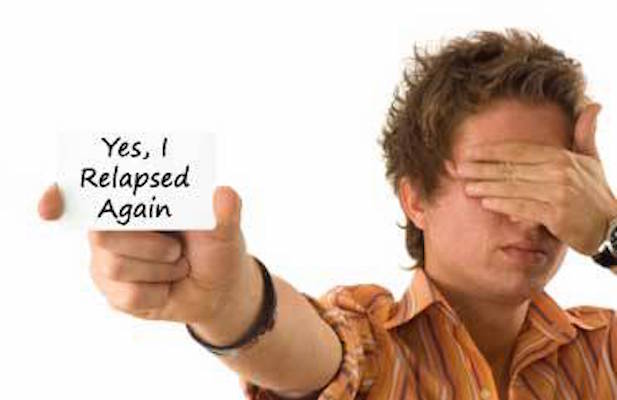 People recovering from addictions find their own path through the change process. For many, relapse occurs somewhere along the way. Learning from your relapse can be part of your change process, but if not properly addressed, could cause regression and lead towards confusion, anger, shame and hopelessness.
People recovering from addictions find their own path through the change process. For many, relapse occurs somewhere along the way. Learning from your relapse can be part of your change process, but if not properly addressed, could cause regression and lead towards confusion, anger, shame and hopelessness.
Understanding What Happened
If you are able to stay sober for any period of time, followed by a relapse, the most important thing to do is to get back to abstinence as quickly as possible and get back to what was working to help you stay sober for those days, weeks, or months that you accumulated. You are susceptible to more consequences the longer you continue in active use or compulsive behavior. This is tricky. The typical internal dialog after a relapse is, “Since I threw away all my sober time, I might as well use one more time,” which then turns to one more time, one more time, in perpetuity. I have worked with patients in my practice who have relapsed after decades of sobriety and struggle to return to abstinence and sobriety. This is because having insight is not enough to stay sober. You have to do the work! Addictions are very complicated and need to be managed to keep under arrest; even with long term sobriety a healthy respect for the power of addiction is important. Don’t open Pandora’s box.
Making a Relapse Work For You
The first thing to do is to admit your relapse to a supportive friend, family member, or your therapist. Admitting a relapse is important as it removes the shame and guilt of the relapse and moves the event out of your subconscious to awareness and consequences. Admitting a relapse is a step towards accountability and taking responsibility, both of which are important tools for recovery. It is dangerous to keep your relapse a secret as you are then trying to use your own mind to work out the problem of relapse. Since much of addiction is a mental process, it is ineffective to use your mind to help yourself resolve the relapse when there is a part of your mind that is driven by addiction processes. The first thing I do when a client reveals having a relapse, is I normalize the event and focus the client on resuming abstinence.
Understanding the Chain Analysis
The next thing to do is to make a chain analysis of the relapse. Because a relapse often starts sometime (days/weeks) before the actual event, it is important to write down the chain of events (both mental and behavioral) that lead to the person picking up the first drink. For example, a typical chain analysis could look like this,
1. Tuesdays, “I thought about going to watch football with my friends this weekend who will be drinking, and I know that is really hard for me.”
2. Wednesday, “I started thinking about drinking and fantasizing about what a cold beer would taste like.”
3. Thursday, “I did not discuss this with my therapist during our session.”
4. Friday, “I have thoughts that I don’t know how to have fun without alcohol.”
5. Friday, “I don’t need help with my drinking, I can deal with watching the game, and I probably won’t drink.”
6. Saturday, “I am feeling stressed out by my work and relationships.”
7. Sunday, relapse occurs while watching the game with friends
This is just one example where it can be illustrated how taking steps to intervene in the relapse process could have prevented the actual use from occurring. There are several things our hypothetical person could have worked on to avoid the relapse including:
- reinforcing hope that having fun without alcohol is possible
- acknowledging the increase in cravings and the need for help and support
- being honest with himself/herself and the therapist about his or her internal processes
- learning to cope with stress without using alcohol
- reviewing strategies to reduce work stress
- considering avoiding the high risk situation/event in early sobriety
Once you complete the chain analysis, make a plan for how to make meaning of the relapse and the necessary steps and actions needed to be more successful next time. Remember, you do not lose any of the work, knowledge, and effort you put into your sobriety that you had during your abstinence just because you relapsed. Pick up from where you left off and continue to make positive changes in your life. A relapse can often help us realize that we have a problem and how severe our problem is when it comes to relapse we should learn from our experiences and the experiences of others to help us understand what changes we want to make.
If relapse has strained your relationships with your family and friends, you may get some angry reactions from a spouse, parent, and/or children. Your words may not do much in reassuring them that this won’t happen again. All you can do is take accountability and explain that you are struggling and had a relapse. Explain that you need their support and their accountability to help you keep moving in the right direction and that change is a process. Put your effort and energy into working on yourself and there will be a day when the thought of you relapsing won’t even enter in your family’s mind.


Add Comment